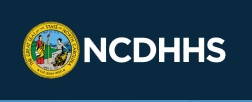
Special to IFN
RALEIGH — Gov. Josh Stein and N.C. Health and Human Services Secretary Dev Sangvai announced Monday more than $6.5 billion in medical debt has been relieved for more than 2.5 million North Carolinians over the past year through the North Carolina’s Medical Debt Relief Program.
“Medical debt is a tremendous weight keeping so many families from financial security, and, unlike most other forms of debt, it’s not a choice,” Stein said. “Today’s announcement will free people from financial stress so they can focus on getting healthy. I thank Gov. Roy Cooper, DHHS Secretary Kody Kinsley, and the hospitals that partnered with the State of North Carolina to make this life-changing news possible. I urge the General Assembly to keep this momentum going by coming back to the table and fully funding Medicaid.”
“Medical debt delays access to care and easing debt is a pivotal step forward to improving the health and well-being of those who carry the emotional stress and financial weight of high costs for medical care.” Sangvai added. “We are grateful to the hospitals and providers who are helping to give a fresh start to millions of North Carolinians.”
Monday’s announcement surpasses initial financial projections for the Medical Debt Relief Program when it was established in July 2024. The announced figure includes debt relieved through the program directly as well as additional debt relieved as hospitals updated policies to implement the program. This initiative both relieves existing medical debt and prevents the accumulation of more in the future.
North Carolinians across the state have begun receiving letters from individual hospitals sharing that this medical debt has been relieved. Additionally, Undue Medical Debt is sending letters to thousands of North Carolinians letting them know they have had some or all of their debt relieved. At least 255,000 letters are being sent this week, with more to come in the following months and years. For information about what the letter looks like, see the example on the DHHS website.
In August 2024, every eligible hospital in the state signed on to participate in the first-of-its-kind Medical Debt Relief Program. This transformative initiative was made possible through collaboration between NCDHHS, 99 acute care hospitals, and Undue Medical Debt.
“We’re honored to play a part in this innovative approach to erasing unpayable medical debts while also incentivizing upstream, pro-patient policies. These changes will protect against financially and emotionally burdensome medical debts in the future while also ensuring our vital hospital partners are financially secure,” said Undue Medical Debt CEO and President Allison Sesso. “Healthcare providers are trusted pillars of the community, and we’re thrilled that all 99 hospitals have signed on to this initiative.”
The Centers for Medicare and Medicaid Services (CMS) approved using medical debt policies as a condition of eligibility for North Carolina hospitals to receive an enhanced level of payment under the Healthcare Access and Stabilization Program (HASP), a program that began at the same time as Medicaid expansion. Neither Medicaid expansion nor HASP required the use of state funds.
To be eligible for the enhanced HASP payments, hospitals were required to relieve medical debt for certain low- and middle-income North Carolinians and adopt more generous charity care policies. Additionally, hospitals were required to strengthen and streamline processes for determining eligibility for charity care/financial assistance and end the reporting of medical debt to credit agencies. This is a comprehensive approach to medical debt relief that both relieves past debt and incorporates enhanced charity care policies to limit medical debt accruing in the future.
Unlike most other debt, medical debt is rarely voluntary. People do not choose to get sick or injured. This debt often arises unexpectedly and exceeds a person’s ability to pay, damaging credit, limiting access to housing and jobs, and causing people to delay needed care. By relieving this burden, the State of North Carolina is helping families regain financial stability, wipe negative marks off credit reports, and access essential health services without fear of long-term consequences.
Hospitals continue to work with Undue Medical Debt to facilitate full implementation of relief over the next year. People who are eligible for relief do not have to take any action. For more information about eligibility and questions about the program, see the organization’s Frequently Asked Questions webpage.
North Carolina’s program to relieve medical debt was started by former Governor Roy Cooper and his NCDHHS Secretary Kody Kinsley. It is the first in the nation to take this forward-looking approach and leverage the state’s Medicaid program to make it possible.



